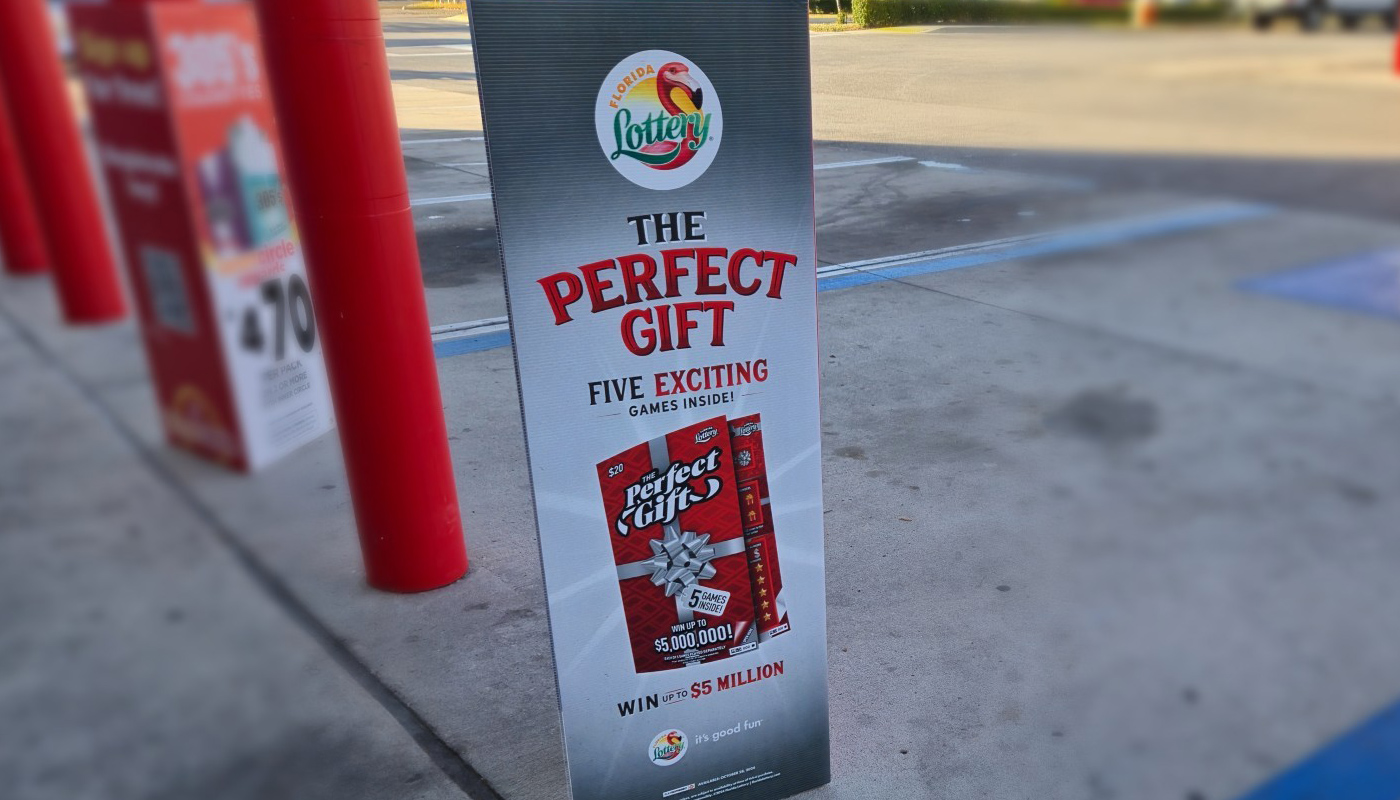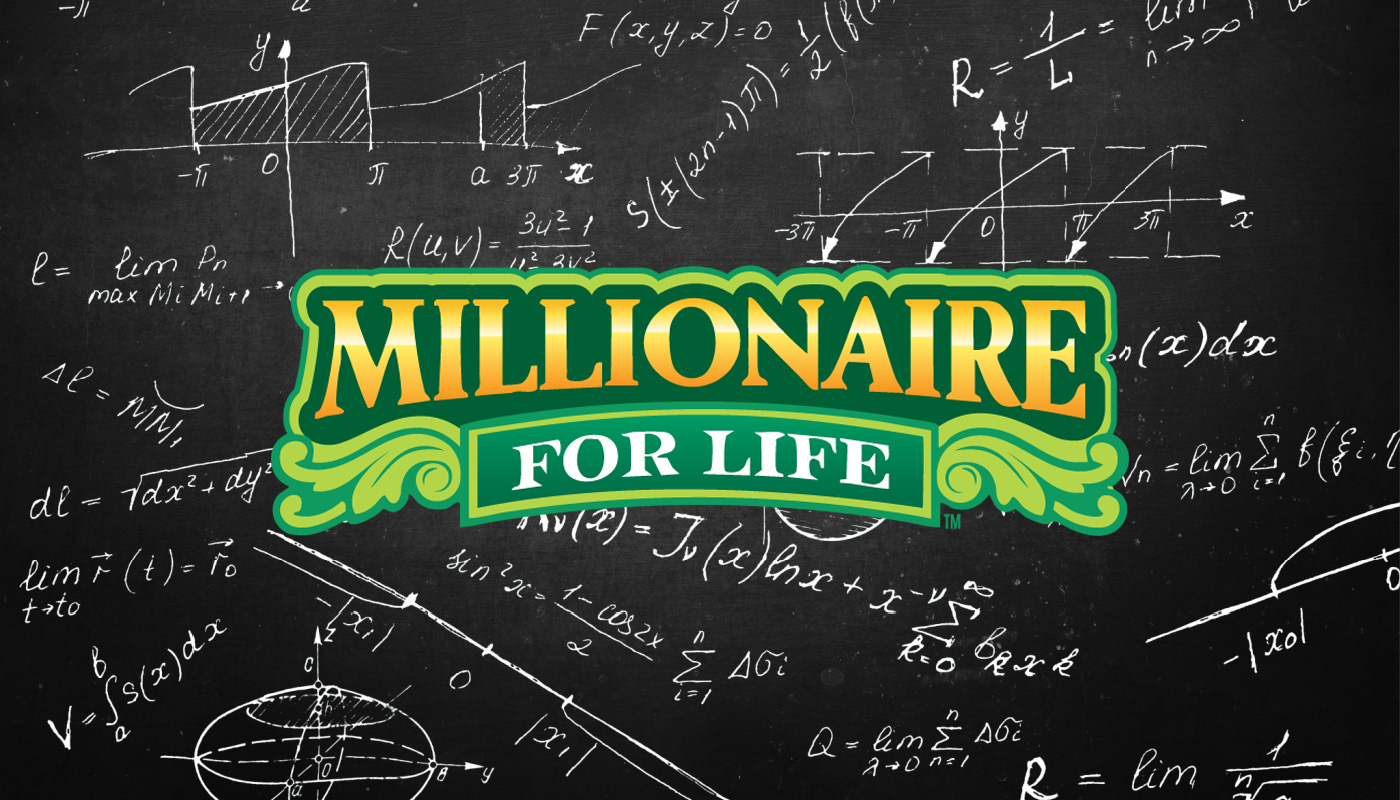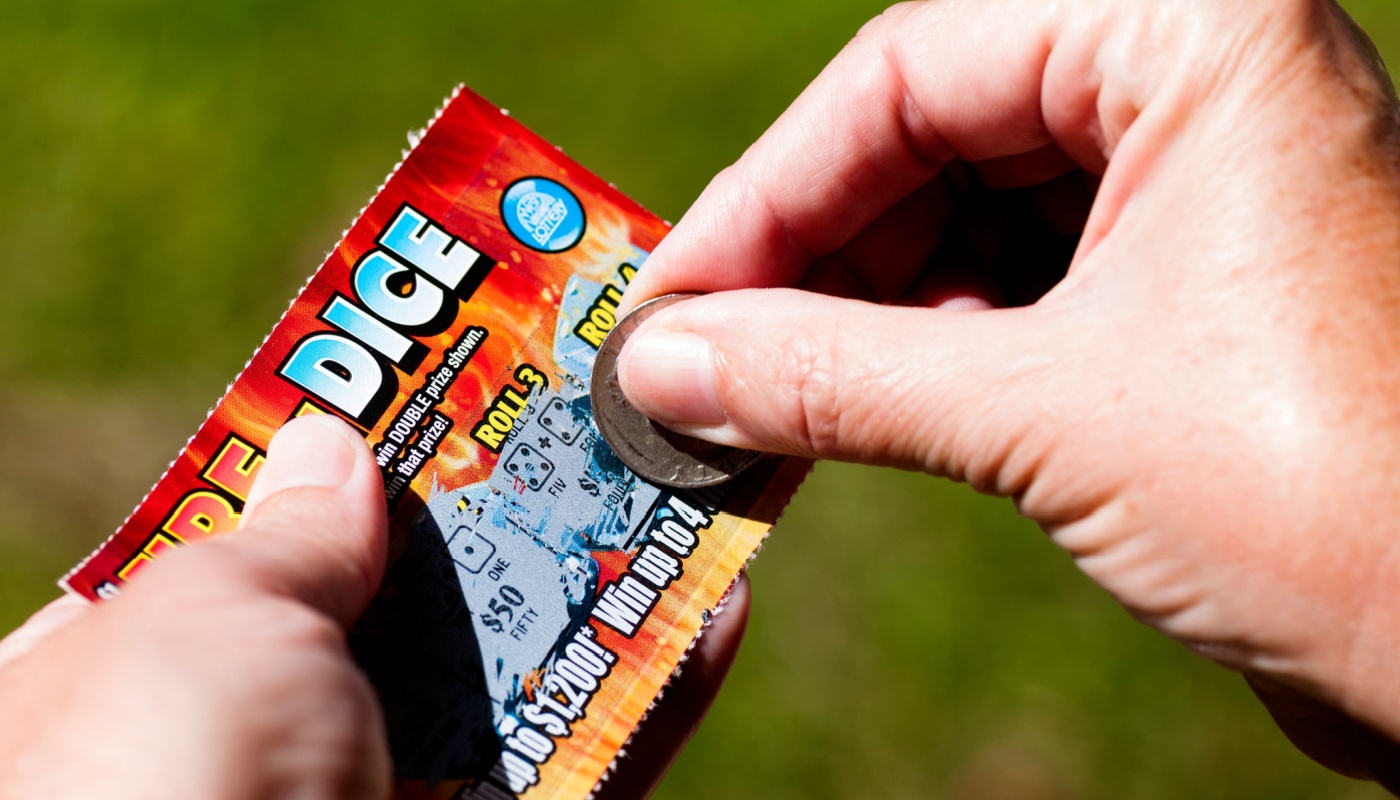
News writer; Opinion columnist
The sign is positioned perfectly for the future impulse buyers and delinquent stocking-stuffers hustling into the Circle K. Right there on the red concrete bollard guarding the front door, it reads: “The Perfect Gift.”
It's a perfectly reasonable suggestion by the Florida Lottery. Scratch-off and traditional lottery tickets are popular all year. They're sold in the same store with the dozen eggs needed for the gingerbread recipe.
It's the gift that can make the giver a holiday hero. What could be the problem?
The potential problem, as underscored by the National Council on Problem Gambling “Gift Responsibly” Campaign, is when these impulse buys and stocking stuffers are presented to children.
Consider: more than 5 percent of teenagers in the U.S. suffer from compulsive gambling disorder, according to a 2018 study by the Journal of Child and Adolescent Behavior. Around 1 percent of adults, meanwhile, exhibit severe problems with gambling.
Other research has concluded that children not yet emotionally developed who are introduced to gambling by age 12 are four times more likely to engage in problem gambling later in life.
Most will end up just fine, but an afterthought token in a Christmas stocking isn't worth the risk, NCPG executive director Keith Whyte told Lottery USA. Whyte said:
I think the main point is that the vast majority of lottery play, even by youth, is not problematic. But by having this campaign, we send a reminder that it could be. We want parents to just be alert that this may not be an appropriate gift, especially for younger kids, or for kids who maybe have other issues.
Visions of dollar bills dance in kids' heads
Again, this holiday season, children who have shredded through presents under the tree will mine their embroidered stockings for that last bit of instant gratification. They'll scrounge for coins and begin sending scratch-off shavings onto the floor in the hope of a few dollars here or there.
They probably won't realize if they win.
And parents probably won't realize they've necessarily done anything wrong. Or at least risky.
But Whyte hopes they will have seen the Gift Responsibly television ads or posters participating lotteries began brandishing in November and had a thought-provoking “Oh” moment before sliding tickets into those stockings.
As the relatively new legal sports betting and social and sweeps casino industries in the United States draw heightened scrutiny from lawmakers, Whyte said the long-established lottery business is best policed by parents.
Whyte, who testified before the U.S. Senate Judiciary Committee hearing, America's High-Stakes Bet on Legalized Sports Gambling on Dec. 17, stated:
Awareness is where it starts because a lot of people don't even necessarily think of the lottery as gambling, and they certainly - we would hope - never give a gift to a kid that might have some negative consequences.
The holiday season is lottery season for responsibility effort
The timing of the initiative is not coincidental. NCPG campaigns heighten awareness during potential sports betting trigger periods such as the Super Bowl and the NCAA Men's Basketball Tournament.
The year-end holidays create a lottery bonanza globally, from yuletide-themed scratch-off tickets to the Spanish El Gordo, a day-long, nationally televised event held each year on Dec. 22.
Whyte commented:
One of the other things that's so important about this campaign is because lottery is by far the most widely-participated form of gambling, it allows a responsible gambling message during the holidays to reach the vast majority of the population. So even if someone's only an occasional lottery player, but a daily sports bettor, seeing a Gift Responsibly message might cut through that clutter. Almost everybody plays the lottery, so we can really reach a lot of people.
Lottery's roots may create a false sense of security
The Gift Responsibly campaign began with the work of Dr. Jeff Derevensky, a retired professor whose psychiatric research at McGill University's International Center on Youth Gambling focused on child and adolescent risk factors. Deverensky's research led to the establishment of Canadian programs to address how early exposure to gambling could put children at risk for future addictive behavior.
Whyte added:
The National Council, for a long time, partnered with him on this campaign, specifically for lotteries. And then over the past couple of years we broadened it to other organizations that are welcome to participate. But it's still very lottery-centric or lottery-focused.
According to the NCPG, for the seventh-consecutive year, all “eligible” U.S. and Canadian lotteries, 19 internationally and “numerous community organizations” have joined the campaign, which is endorsed by the North American Association of State and Provincial Lotteries, the World Lottery Association, and the European Lotteries.
The lone holdout in the U.S. was again the North Dakota Lottery.
A spokesperson for the organization told Lottery USA in an email response: “The North Dakota Lottery is a division of the North Dakota Office of Attorney General. Per direction from the Office of the Attorney General, we are to only post this graphic on our website:”
Whyte conceded that “it took a while” for all the other state lottery boards to acquiesce. The eventual support of the NASPL's Responsible Gambling Committee was crucial, he said.
“I think when they realized it was a pro-responsible gambling message rather than an anti-gambling campaign, and, I think, when lotteries saw other lotteries embrace it successfully, that helped,” Whyte stated.
Retailers that post responsible gambling materials and YouTube and television spots are key cogs in spreading the message.
The Oregon Lottery's campaigns have been frequently recognized by the NCGP as among the most creative nationally. Participants are graded on their level of activation, and this year, 15 U.S. lotteries received a top “Level 3” designation.
2024 NCPG Level 3 Lottery Participants:
- Arkansas Scholarship Lottery
- California State Lottery
- Colorado Lottery
- Connecticut Lottery
- Hoosier Lottery/IGT Indiana
- Illinois Lottery
- Michigan Bureau of State Lottery
- New Jersey Lottery
- New York State Gaming Commission
- Ohio Lottery Commission
- Oregon Lottery
- Pennsylvania Lottery
- Texas Lottery Commission
- Florida Lottery
- Virginia Lottery
Whyte explained:
We know there's some lotteries that really, really do a thorough job and we want to recognize them. But there's other lotteries, especially some of the smaller ones, that don't have the capacity, don't have the resources. I think it helps everyone understand who's doing it and who's able to do a lot more than others.
Ultimately, the success of the program rests on loved ones having that 'Oh' moment and choosing not to take that gamble. Their impressionable children are already exposed to the idea of gambling throughout their day, from loot boxes in video games to daily fantasy apps that are very much adjacent to sports betting.
Whyte hopes the holiday gift exchange will be a refuge.




















Comments